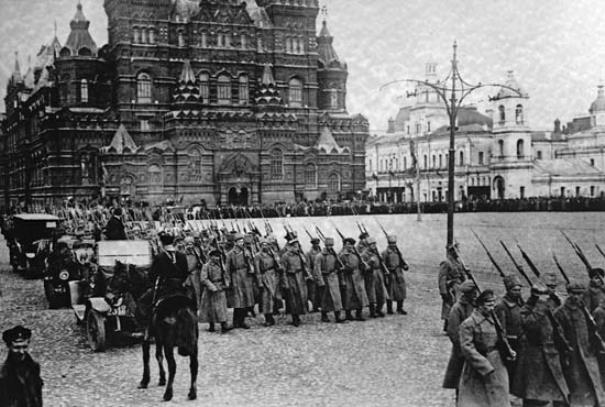
As we reflect on the impact of the Russian Revolution on its 100th anniversary, we’re bound to hear routine admiration of its goals and ideals, even among those who duly recognize the violence and oppression that followed.
It’s a common refrain, whether made by college professors or garden-variety Bernie Sanders activists: Socialism has not been tried and found wanting; it has been found difficult and not tried. Indeed, even those who oppose such a system are often complicit in this sort of thinking, arguing that “socialism would be wonderful if only it were realistically sustainable.”
But would it? The destruction that communism wrought in the 20th century includes horrors that we cannot ignore. But even if do, are the underlying “ideals” all that admirable to begin with?
Would the world be all that beautiful if we were to fully imagine “equality” and “worker’s rights” through a filter of top-down materialistic power and control? Would humans be all that happy or fulfilled if we were to relish in losing our freedoms (as socialism requires) and fully embrace our lives as worker bees in an efficient hive — as “useful” cogs in a mindless machine?
Even if it “worked,” is such a fantastical world something we could actually call “utopia”?
Alas, to indulge in such fantasies not only requires a rebellion against human reason and the laws of economics. It requires a rebellion against humanity itself.
“Communism is not a beautiful ideal that was corrupted by bad people,” writes economist Art Carden. “A few minutes of reflection and serious thought reveal it as a blood-soaked attempt to snuff out the things that make us human. Socialism didn’t fail because it is an ideal of which we aren’t worthy. Socialism failed because it is internally incoherent and structurally unsound.”
If we let the lofty levelers have their way, we will inherit a world where humanity is robbed of its dignity and originality, discouraged from creativity and innovation, and restrained from the collaboration and relationship found in free and open exchange (not to mention freedom of religion, speech, press, and so on). Even if such a system were to be filled with morally superior know-it-alls and somehow achieve material prosperity, it would still be a society of serfs, submissive to their overlords’ enlightened plans for social “equity,” and thus servile in all the areas where God created us for active stewardship.
God created us in his image for specific purposes, blessed with unique gifts and capable of remarkable reflection and revelation that transpires across economic life — through creativity and innovation, yes, but propelled by the love that’s spent and lent through service and sacrifice and relationship. These are the features of humanity that ought to be leveraged, channeled, and unleashed, and it is precisely these features which socialism seeks to control, suppress, or forbid.
Authentic social harmony is impossible without them, and thus, when the planners attempt their pet subversions, we ought not be surprised when the world correspondingly turns into a cold cultural vacuum at best and a death-ridden Soviet gulag at worst.
We are constantly told that communism or socialism could succeed “if only men were angels,” but such a refrain would do better to replace “angels” with “ants” or “robots” or “machines.” For whatever it is that angels do, following the materialistic demands of human despots is likely not high on their lists.
This is the reality of what the Russian Revolution and the many others like it sought to reduce us to: mere material beings, destined to be programmed and positioned according to our commissar-designated functions, geared and refined and maneuvered as servile engines in someone’s arbitrary vision of morally supreme equilibrium. This is not what we were made to be, and any “ideals” or “desired ends” that pretend otherwise ought to be defined accordingly — as debased and corrupt from the beginning.
We are fortunate to live in a society where human freedom is cherished and unleashed and has largely prevailed. But the resistance of the revolutions of yore still remains — against reason, against spirit, against man. Rather than romanticize these rebellions by praising them for their “idealism,” let’s romanticize the truth about human destiny, and get about embracing it.
Image: Public Domain

